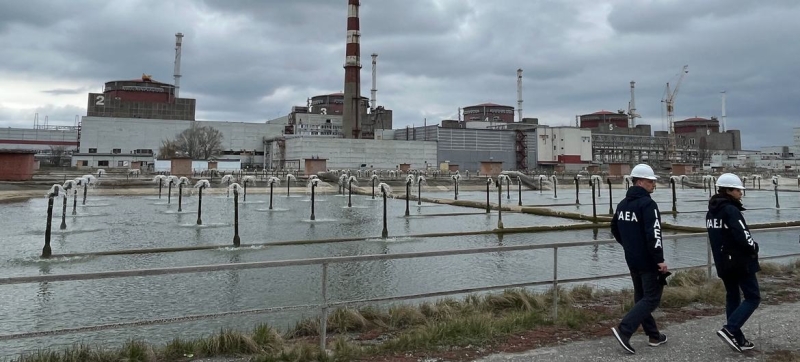
IAEA experts at the Zaporizhzhya NPP. IAEA assesses consequences of latest wave of airstrikes on Ukraine’s energy infrastructure Peace and Security
The International Atomic Energy Agency (IAEA) has begun assessing the damage caused to Ukraine’s energy infrastructure by recent airstrikes, the agency’s Director General Rafael Grossi announced.
Strikes on Ukraine’s Power Grid
Severe attacks, including a major airstrike on December 25, have disrupted the country’s power grid. As a result, the capacity of reactors at three operating nuclear power plants (NPPs) was temporarily reduced. Although all reactors soon returned to full capacity, the incident once again highlighted the vulnerability of Ukraine’s power grid to armed conflict.
IAEA Experts’ Work
During an eight-day mission that ended on 23 December, IAEA experts examined the condition of seven key electrical substations. These facilities play a critical role in ensuring the stable operation of the Khmelnytskyi, Rivne and South Ukraine NPPs. They are also important for transmitting energy generated by the nuclear power plants and ensuring their emergency power supply in the event of a power outage.
Experts recorded damage and collected data on the consequences of attacks on these facilities. IAEA staff met with Ukrainian power engineers, NPP operators and industry regulators to better understand the current situation. Based on the information collected, the agency develops technical assistance to prevent potential accidents.
Nuclear Safety Risks
Rafael Grossi stressed that attacks on energy infrastructure not only destabilize Ukraine’s energy system, but also create risks to nuclear safety. “A stable energy supply is critical for the safe operation of nuclear power plants,” he said.
Support for the Zaporizhzhya NPP
Special attention is paid to the Zaporizhzhya NPP, which is under Russian control. IAEA experts continue to work at the facility, monitoring the condition of equipment and safety systems.
The IAEA continues its mission in Ukraine to ensure nuclear safety in an unstable situation. The agency’s work helps reduce risks and maintain the stability of the country’s nuclear energy sector.
